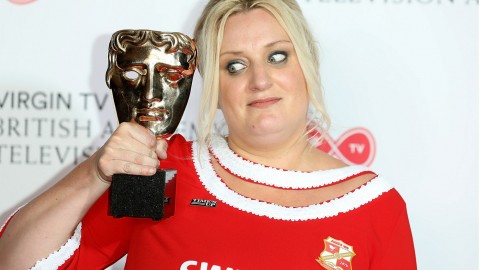
Michaela Coel’s new show I May Destroy You, which premiered on BBC One and HBO Max on June 7, is an unflinching tale of the ongoing violence Black women are subject to, as well as its lasting impact.
The show centres Arabella, a young Black working class writer from Hackney in east London, who, upon the success of her self-published memoir Chronicles of a Fed-Up Millennial, is thrust into the world of traditional publishing, where she is surrounded by those unlike the people in her close circle – rich, white and powerful. Coel brings a fresh perspective to the conversation surrounding the way women are sexually exploited, specifically the unique ways Black women experience both sexual violence as well as physical and emotional abuse. Coel’s writing is blunt and unapologetic, from the way she writes her character’s dialogue to the portrayal of Hackney to the violence and its effects. But, most importantly, Coel’s writing exposes the gaping hole in the mainstream conversations about sexual assault, more specifically the Me Too Movement.

Since the movement began receiving widespread coverage in 2017 as a result of the sexual assault allegations against Harvey Weinstein, the face of Me Too and of violence against women at large became white, as Black women and their stories of similar sexual violence were erased and buried. The Me Too movement has moved away from its initial purpose due to the erasure of the Black and Brown women for whom the movement was started, according to Black activist and founder Tarana Burke. The erasure of violence against Black women is not new. At this point, it is part of the western canon, from Black enslaved women being violated during the time of the trans-Atlantic slave trade to Henrietta Lacks’ cells being used without her consent to Breonna Taylor’s murder by police to Toyin Salau’s brutal slaying, and the abuse of millions more. Coel recentres Black women, reclaiming a movement that has been co-opted and colonised, and successfully shows the everyday violence we come up against.

The show is like an onion; each episode is a painful layer being pulled back and dissected with the intention of making us, the viewers, unpack the ways we and those around us harm Black women. Coel highlights the multitude of ways Black women are exploited by those we love and hold dear within our communities as well as white individuals and white supremacy, highlighting how pervasive abuse can be. While it is a white man and then an Asian man that sexually assault Arabella, they are not the only ones enacting violence against her. Her friend Simon, a Black guy who she has been close to for years and is like family, abandons her while she is clearly in a poor state, which leaves her vulnerable to the abuse of strangers. Simon’s abandonment of Arabella presents a wider conversation about the ways in which cishet Black men are often involved in the abuse of Black women, either as enablers or perpetrators. With Simon, not only is he complicit in the abuse of Arabella, Coel gives us a snapshot into his personal life where he also violates his wife by being adulterous, and violates the woman he is seeing behind his wife’s back by feeding her lies while using her body for sexual pleasure.

Arabella is abused in other ways by both her publisher and literary agents who, upon hearing she was raped, tell her to sell her pain in order to make them money. This is reminiscent of the ways Black women’s trauma is often downplayed and not treated with the same respect or care as their white counterparts. The parallels between the economic exploitation of Arabella and other Black women in history, such as Henrietta Lacks, is uncanny.
Black women are the forgotten survivors of sexual assault. Our stories of exploitation and abuse are overlooked; we are erased from movements – even those that we create and we are dehumanised to the extent that many, whether it is conscious or not, believe that we deserve it. There is a false notion that violence and abuse are things Black women are able to bear because of our perceived strength and resilience. People paint us as gods that can withstand anything, not because they value our bodies or lives, but because it helps them avoid being accountable for the ways in which everyone enacts violence onto Black women.

Black women are hardly ever portrayed as human, but Arabella is. The most radical thing about I May Destroy You is that Coel completely destroys the strong Black woman archetype and presents us with a broken Black woman just trying to survive.
‘I May Destroy You’ is streaming now on BBC iPlayer
The post ‘I May Destroy You’ shows dark-skinned Black women reclaiming the Me Too movement appeared first on NME Music News, Reviews, Videos, Galleries, Tickets and Blogs | NME.COM.








